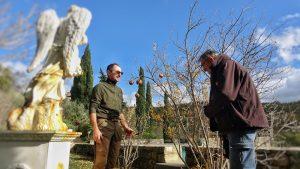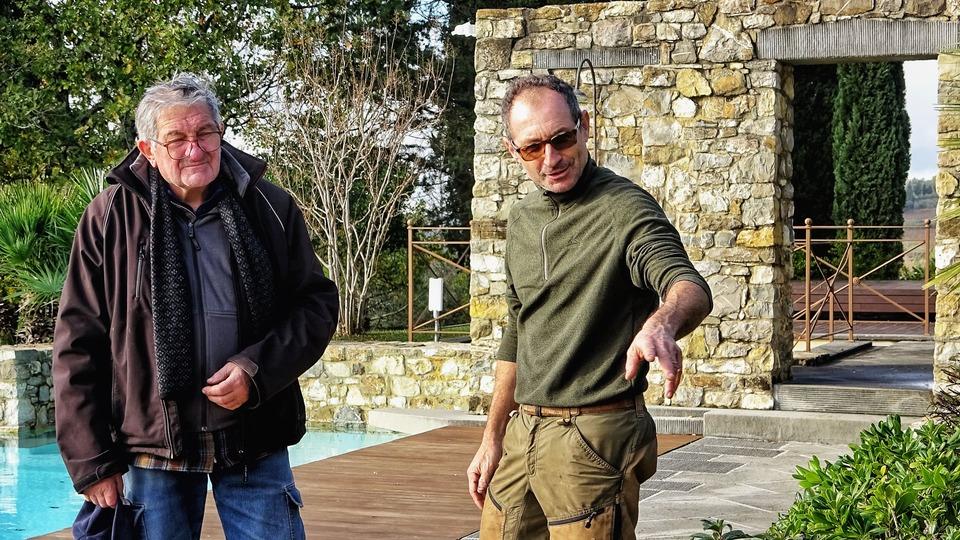By Simone Bandini
“Everything is artificial, everything is natural.”
The story of the friendship between Pier Luigi Bagni and Luca Foschi is a golden flower: one of those rare and delicate ones that can be found on top of a mountain in early summer, or at the edge of the forest in spring. More than twenty years have passed since the day when the two decided to combine their acquaintances to found the company “Vivaio Fiori nel Chianti”. We tell you the story of these two “Piantautori” below, it is necessary to use a neologism coined by Luca himself.
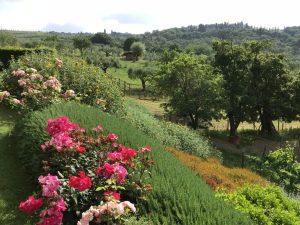
Pier Luigi Bagni is an agricultural expert, who grew up ‘among the plants’, and has been passionate about nursery and gardening since he was a child. Son of art, his father created gardens for celebrities, from Sophia Loren to Modugno, up to the noble estates of the Duchess of Aosta and the Marquise Gerini – awarded several gold medals both at the Flor 61 competition and at Euroflora 66, where the young Pier Luigi took his first steps and fell in love with this world: “I was born and I lived in the countryside among the olive trees and plants I cultivated; I am particularly attracted by herbaceous perennials (…) whose flowering is always generous both in terms of colour and abundance. I think they’re ‘the salt of the gardens’, creating splashes of colour in exchange for very little care,” he says. And we can only agree, especially in the era of profound climate change and major hot and dry periods.
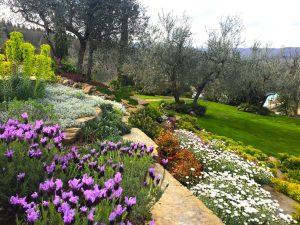 Luca Foschi, on the other hand, is a Doctor in Forestry Sciences who developed his vocation thanks to the meeting with Pier Luigi himself, with whom he created a leading company in the Florentine area in the field of floriculture and gardening: “(…) I believe that in order to leave a mark, our work must have a high level of professionalism given by a deep knowledge of plants, chemistry, biology, pedology, physics, as well as a particular sensitivity, aesthetic taste and inexhaustible artistic vein”.
Luca Foschi, on the other hand, is a Doctor in Forestry Sciences who developed his vocation thanks to the meeting with Pier Luigi himself, with whom he created a leading company in the Florentine area in the field of floriculture and gardening: “(…) I believe that in order to leave a mark, our work must have a high level of professionalism given by a deep knowledge of plants, chemistry, biology, pedology, physics, as well as a particular sensitivity, aesthetic taste and inexhaustible artistic vein”.
The “Vivaio Fiori nel Chianti” now extends over two different areas: the production nursery is in the Municipality of Impruneta, while the exhibition and sales nursery is located in the Municipality of Greve in Chianti, near Strada. Today, the company operates throughout the Tuscan territory even if, in Chianti, it has laid deep roots with creations of absolute importance and international patronage.
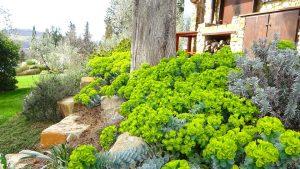 Among the cornerstones of their creative philosophy is a certain concept of metaphysical immanence to the context: “The garden is already here. You just need to know how to look for the genius loci. You have to know how to listen, to observe. Everything is already written, the real gardener is able to make a garden as if it had always been there, part of the whole”.
Among the cornerstones of their creative philosophy is a certain concept of metaphysical immanence to the context: “The garden is already here. You just need to know how to look for the genius loci. You have to know how to listen, to observe. Everything is already written, the real gardener is able to make a garden as if it had always been there, part of the whole”.
“Our work,” they tell us, “Has evolved over time with technical and IT aids; Today we are able to design on floor plans even with the use of photographic renderings. However, a great deal of work is done upstream, in the nursery, in the ground or in pots! It is essential, in fact, to grow and select plants suitable for our territory – as opposed to many ‘commercial’ simplifications promoted over the years by Pistoia nurseries that do not know the characteristics and sometimes the ‘harshness’ of our land, and in particular of the hilly area of Chianti”.
“There is an infamous land here! – Pier Luigi tells us with a grimace – mainly clayey and which requires targeted interventions: from the initial earthmoving to establish the right spaces, floors and slopes – to the correct drainage, the piling of the slopes and the preparation of an efficient irrigation system”.
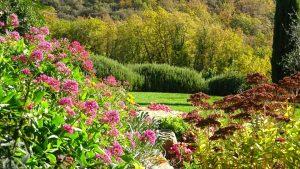
“The rapid climate change of the last few decades,” adds Luca, “with torrid and dry summers, has led us to choose plants that are well suited to the changed environmental conditions: euphorbiae, grasses, sedum, phlomis, rockroses, teucrium, nepeta, stachys, just to name a few. All plants that initially, especially in the first year, must be followed carefully but then do not require special care and live almost independently. Among the tall trees, the criterion is the same, that is, to be able to fit correctly into the climatic, ‘historical’ and landscape context: suffice it to mention for now the oak, the field maple, the mulberry, as well as holm oaks, cypresses and of course olive trees”.
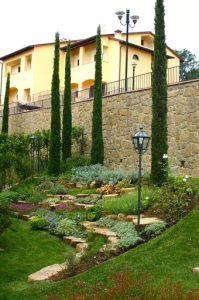 In the final analysis, both the choice of essences and the founding concepts of this ancient art cannot be separated, today, from the careful assessment of the environmental impact: “In recent years, the choice of plants that resist drought is a matter of ecological awareness: wanting to reduce water consumption and adopting efficient irrigation systems. At the same time, for the same reason, we have been proposing gardens for years where lawns are replaced by plants and – if they really have to remain – we think of ‘expanses’ of gentle grass, in order to drastically reduce water consumption. We propose sustainable gardening, with the reduction of irrigation but also the use of organic fertilizers, mycorrhizal fungi and the use of natural pesticide products”.
In the final analysis, both the choice of essences and the founding concepts of this ancient art cannot be separated, today, from the careful assessment of the environmental impact: “In recent years, the choice of plants that resist drought is a matter of ecological awareness: wanting to reduce water consumption and adopting efficient irrigation systems. At the same time, for the same reason, we have been proposing gardens for years where lawns are replaced by plants and – if they really have to remain – we think of ‘expanses’ of gentle grass, in order to drastically reduce water consumption. We propose sustainable gardening, with the reduction of irrigation but also the use of organic fertilizers, mycorrhizal fungi and the use of natural pesticide products”.
A strong point of this association of landscape architects is, moreover, and undoubtedly the management of slopes, typical and ‘critical’ factors of our land, through the design of rock gardens that can bring to their advantage a fact that is only apparently negative!
Info: Nursery “Fiori nel Chianti” by Pier Luigi Bagni and Luca Foschi s.s.. Nursery and Point of Sale: Via della Montagnola 181 (10° km Via Chiantigiana), Greve in Chianti (Fi) / Tel. 055 8587206 / 333 4379578 (Pier Luigi) / 328 7037037 (Luca) / www.fiorinelchianti.it / info@fiorinelchianti.it
